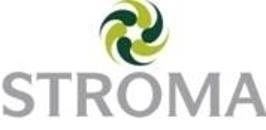Stroma lodges the first DEC, less than five months before the requirement becomes mandatory for 43,000 UK public buildings
The first of the display energy certificates (DECs) that are soon to become mandatory for 43,000 public buildings has been issued, by Stroma Accreditation.
By 1 October all public buildings with a floor area greater than 1,000m2 and occupied by a public authority or a body providing a public service must display a valid DEC or face a fine of up to £5,000. Around 43,000 buildings will be covered.
Stroma Accreditation issued the first certificate for a council building in West Yorkshire, for which few weeks ago it also issued the UK's first energy performance certificate (EPC) for a non-domestic building.
DECs will inform the public about a building's energy performance, by showing its actual energy usage as an operational rating. The initial DEC is accompanied by an advisory report recommending cost-effective measures to improve the building's future energy ratings.
DECs will need to be updated annually, and the accompanying advisory report every seven years. All DECs and EPCs must be carried out by licensed assessors registered with an accreditation scheme approved by the Department for Communities and Local Government, using accredited software.
The assessment for the first DEC was carried out by Rob Molyneux of Stroma Technology.
Rob Coxon, director of Stroma Technology, said: “We are delighted to lodge the first DEC in the UK. However, we expect it to be the first of many. In preparation for this, we have created an operation capable of providing a one-stop-shop service from the initial energy assessment to lodgment.
“Furthermore, through Stroma Accreditation, we can provide accredited training for local authorities that wish to carry out their own energy assessments. With most public buildings needing to have DECs in place by October, this could be the most effective route for local authorities and other landlords to achieve this.”


























No comments yet